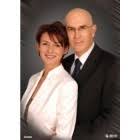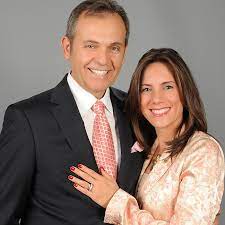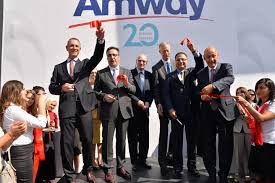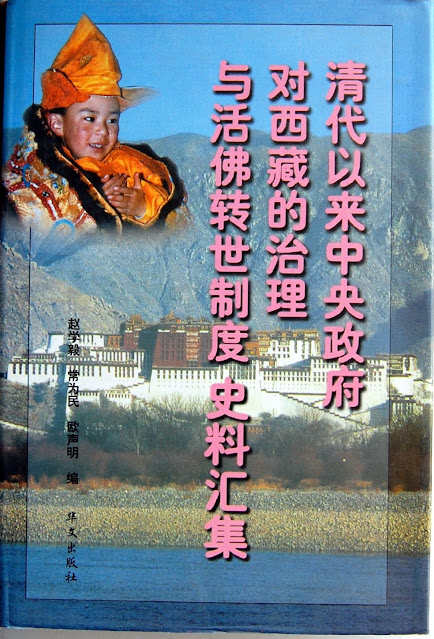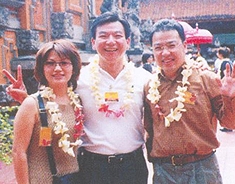Amway North America
Amway is the world's largest and oldest multilevel marketing business (MLM) (MLM). Founded as "JaRi Corporation" in 1949 and renamed "Amway Corporation" in 1959, the company restructured in 1999 and became a part of the Alticor holding company. The same year, Alticor formed a sibling firm to Amway, Quixtar with a focus on exploiting the internet. By 2001 the majority of Amway distributors had switched to Quixtar and Amway North America was incorporated into Quixtar. From September 1 2008 Quixtar was rebranded Amway Global, then in 2010 the corporation reverted to the Amway moniker.
History
In the early 1930s, Carl Rehnborg began marketing America's first large line of vitamins through his "California Vitamin Corporation," which in 1939 changed its name to Nutrilite Products Company, Inc.
In 1945, Nutrilite collaborated with Lee Mytinger and William Casselberry to become the official American distributor of Nutrilite vitamins. Mytinger and Casselberry created the first significant MLM using today's industry's similar basic idea. Each independent distributor would be entitled to commission their own sales of Nutrilite products and override the sales made by those recruited below by the distributor as new distributors and those recruited by them and so on.
Mytinger was a salesman, Casselberry a psychotherapist. The original vitamin Nutrilite was a mix of vitamins and minerals based on alfalfa, parsley, and watercress. They advertised it to make it unique from other products. They sold material in strength and double strength (Double X) at $20 a month in the forty-fifties.
Rich DeVos and Jay Van Andel became "Nutrilite" vitamin distributors in Mytinger and Casselberry's network. On September 6, 1949, DeVos and Van Andel joined their Michigan Nutrilite distributorship as Ja-Ri Corporation.
By the late fifties, Van Andel and DeVos and other distributors experienced difficulty with their supplier, Nutrilite Products Company, Inc., and Mytinger & Casselberry, Inc. Mytinger & Casselberry were among the Food and Drug Administration's investigation and prosecution for making fraudulent health claims regarding Nutrilite products. A small group of distributors was appointed, chairman Van Andel, to try to work out an arrangement with Nutrilite.
Van Andel and DeVos determined that their suppliers were in serious danger of collapse and that they should jump into the business themselves, manufacturing their own products and distributing them through the Ja-Ri sales organisation with more than 2,000 distributors. They put created a distributor association named the American Way Association, which was eventually modified to the Amway Distributors Association (this eventually became North America's "Independent Business Owners Association International" or IBOAI). This organization's principal goal was to allow Van Andel and DeVos to communicate with their Ja-Ri organization's Nutrilite distributors and hold the business together until they could create their own manufacturing facility.
Van Andel and DeVos, with their loyalty to Nutrilite food supplements, had to be very careful to change their distribution organisation. Since distributors were autonomous, they may quit. Therefore, Van Andel and DeVos needed these distributors to agree in their plans to establish a product distribution and production business; and they discussed the kinds of products they intended to make with the distributors' group. Many of the organization's distributors joined the American Way Association and began distributing products sold by Ja-Ri Corporation/Amway Corporation. There were originally 35 Nutrilite distributors who joined as the first Amway distributors. Amway Distributors Association's first president was Walter Bass.
They chose to look for products that were readily consumable, relatively low-priced, distinctive from those found in retail outlets, leading to repeated sales. They chose soap and detergents because they considered it was the easiest market to train selling distributors. Van Andel and DeVos started distributing a liquid detergent called 'Frisk' through Ja-Ri, which they renamed LOC (liquid organic compound) and is currently one of Amway's main products. Eckle Company, a tiny supplier in Detroit, Michigan, produced this product and was one of the only biodegradable liquid detergents available at the time. Van Andel and DeVos acquired the company through Ja-Ri Corporation, moved assets to Ada, Michigan, and changed its name to Amway Manufacturing Company. A few months later they introduced SA8, a biodegradable detergent.
In November 1959, they created "Amway Sales Corporation" and "Amway Services Corporation." The name "Ja-Ri Corporation" was changed to "Amway Corporation" in November 1963; and Amway Sales Corporation, Amway Service Corporation, and Amway Manufacturing Corporation were amalgamated into Amway Corporation on January 1, 1964. Amway then purchased Nutrilite, a flagship brand in Amway/Quixtar today.
Today, "Amway Corporation" has another new name, Alticor, Inc., but it's still the same Michigan Corporation that began in 1949 as DeVos and Van Andel's Nutrilite distributorship. Alticor, Inc. owns several firms, including -
- Amway Global/Quixtar North America, a Virginia company formerly known as "Amway USA, Inc." that operates the U.S. and Canada's old Amway sales system.
- Amway Corporation, a new Delaware subsidiary, after Amway changed its name to Alticor.
- Access Business Group, Alticor/Amway/Ja-manufacturing Ri's and development arm.
- Fulton Innovation, Research and Development
Data on sales
Endorsements
Amway, UNICEF
Since 2001, Amway affiliates in Europe are a major partner of UNICEF's immunisation programmes (read more on Amway and UNICEF here ). This video shows Ambassador Roger Moore thanking Amway and Amway IBOs for their assistance.
IBOs have the option of creating free personal websites that can be customised to focus on health, beauty, and/or gift and incentive products. The referring IBO then earns the retail/wholesale profit (typically 30%) as well as a percentage ("bonus") of the cost of the sold items (ranging from 3% to 31% based on total PV generated), with Quixtar-exclusive products generating a greater bonus per dollar in PV/BV. Quixtar's IBOs can acquire a wide selection of products for personal use or to sell to customers via Quixtar.com and IBO personal e-commerce sites.
IBOs pay a one-time registration fee and grow their businesses by selling retail to customers, introducing customers to Quixtar.com, and assisting other IBOs in growing similar enterprises. Their revenues are determined by the sales of their firm as well as the number of sales and purchases of IBOs that they have registered. [10] [14]
Quixtar IBOs' earnings
IBOs from Quixtar receive money in a variety of ways, including IGP (immediate gross profit), Performance Bonus, Leadership Bonus, and other Growth incentives. IGP is the profit made when an IBO's clients purchase Quixtar products and services at full retail price. If the PV level of the IBO is greater than 100 PV in a month, a performance bonus ranging from 3% to 25% of the group volume (total BV of the sale made by the group) is awarded. The leadership bonus is based on 4% of the BV of each qualifying leg, which is 25% or 7500 PV. Quixtar announces growth incentives in the form of bonuses and paid trips at various levels every year. IBOs who have achieved Platinum or higher achievement levels are eligible for these benefits.
According to The Quixtar IBO Compensation Plan[14] and a Quixtar website, the average salary for a "active" Quixtar IBO in 2005 was $115 per month ($1,380 yearly).
[15] The average annual Quixtar income for a 2005 Platinum-qualified IBO (0.1683 percent of IBOs) was $47,472 and $146,995 for a Diamond (.0120 percent of IBOs). A Diamond's greatest single annual bonus (besides monthly salary) was $1,083,421. [15] [16]
That said, Inter@ctive Week says, "The commissions aren't all that great, yet they can sum up to more than 50% of the selling products cost. If Amway's private holding generated an estimated $6 billion in sales in 1998, then each of its 1 million distributors would have averaged only $6,000. It's good extra revenue, but only for the most talented, hardworking, or aggressive. Or, for those with a huge family tree
That's because this sort of marketing relies on what Ken McDonald, Amway North America's regional vice president, calls "high touch." That's what amounts to the necessity for agents or distributors to go out and touch people they know for sale. Nearly all Amway sales start with face-to-face contact between acquainted people "(Week Inter@ctive).
The IBO registration form qualifies a "active" IBO:[17] "Active" indicates an IBO that sought to make a retail transaction, or presented the Independent Business Ownership Plan, or got bonus money, or attended a company or IBO meeting in 2000. Approximately 66 percent of all record IBOs found "Active."
IBO International Association
The IBO Association International (IBOAI) was created in 1959 as the American Way Association to "serve the common concerns of Independent Business Owners across North America." Members are serviced by an 18-member board, assisted by seven full-time employees. [18] Board members of the Association are "chosen by voting members." [19] [20]
Accreditation
In 2006, Quixtar created the "Quixtar Accreditation" programme in conjunction with IBOAI (IBO Association International) to address concerns regarding companies providing business support materials to Quixtar IBOs. North American Diamonds (high-level IBOs) and affiliated training firms may apply to Quixtar for corporate accreditation. Accreditation clearly says, amongst alia, that promoting certain religious or political ideas is unacceptable. Furthermore, certified programmes must agree on a range of other requirements, including full disclosure in any compensation given for Business Support Materials. The "complete" openness applies only to IBO's participating in BSM income, for most groups this means Platinums and above, representing a very tiny number of IBO's. Accreditation lasts two years and is enforced through IBO material reviews and surveys. The IBO Communications Platform lists all guidelines. [21] In April 2006, "eFinity" became the first Quixtar-affiliated support group to be accredited.
Ranking and sales
Forbes listed Alticor as America's 27th largest private-owned firm with an estimated $7.29bn sales.
[22] In 2006, Internet Retailer recognised Quixtar.com as number one site in the general "health and beauty" category[23] and 18th largest e-commerce site (for revenue).
Quixtar-powered IBOs generated $1,118 billion in revenue for Quixtar for the fiscal year ending December 31, 2006, the fourth consecutive year the firm topped the billion-dollar mark. IBOs additionally recorded revenues of $84.6 million for Quixtar's 2006 Partner Stores. [24]
Promotion
Athletes who promoted Quixtar or its products include Jamaican Olympic sprinter Asafa Powell, American pole vaulter Jennifer Stuczynski, American Olympic sprinter Sanya Richards, U.S. Olympian Shaun White, Cinematographer Wes Anderson, Chinese Olympic hurdler Liu Xiang;[25] Brazilian soccer player Ronaldinho, heavyweight boxer Evander Holyfield, and Heisman Trophy winner Ron Dayne. Tim Foley, an undefeated 1972 Miami Dolphins member, is a Quixtar Founders Crown Ambassador. [26]
Author John C. Maxwell, who authors leadership books like The 21 Irrefutable Leadership Laws, co-authored Becoming a Person of Influence with Jim Dornan, Quixtar Founders Crown Ambassador and founder of Quixtar Network TwentyOne. Orrin Woodward and Chris Brady, Quixtar's former IBOAI board members, co-authored #1 bestseller Launching a Leadership Revolution. Both Woodward and Brady were terminated by Quixtar and took part in a class action lawsuit against Quixtar alleging that Quixtar was an illegal recruitment scam. [27] [Source unreliable?]
Phil McGraw ("Dr. Phil") reportedly praised Quixtar as "one of the greatest success stories in American business history" at the 2003 Quixtar LIVE! conference.
[Note required] In a 2006 settlement involving a class action lawsuit brought against McGraw and his dietary Shape-Up products, complainants received $6.0 million in Quixtar-brand Nutrilite vitamins and $4.5 million in cash. [28] [29]
Sporting interests
Orlando Arena's rights
In December 2006, Amway obtained naming rights for Orlando Arena, home to Orlando Magic of the NBA, formerly known as the TD Waterhouse Centre. The venue became known as Amway Arena. As part of the arrangement, Amway also had the exclusive right to initially negotiate the naming rights of the successor of the arena, and early August 2009 obtained a 10-year deal to name the new Amway Center facility. [30] [31]
Earthquakes San Jose
Before the 2009 Major League Soccer season, Amway Global struck a three-year partnership with San Jose Earthquakes to become the official sponsor of the team's uniform.
Most of the relationship focuses on community programmes in the Bay Area. As a result, Amway Global is now also the official sponsor of the Kicks for Kids programme of the team that focuses on fitness and healthy lives as well as bringing impoverished kids to Earthquakes games.
The collaboration also saw the establishment of the Amway Global Street Team, appearing at all home games of Earthquakes and at several soccer and non-soccer events throughout the Bay Area. Amway Global Street Team members provide Earthquakes-branded items and demonstrate soccer abilities at each event.
As of 2012, Amway officially concluded their 3-year Earthquakes partnership as their official sponsor.
Los Angeles Sun
In March 2009, Amway Global struck a multi-year partnership to become Los Angeles Sol's official presenting partner of Women's Professional Soccer.
[33] That partnership would last a year, since the Sol collapsed following the 2009 season.
Controversies \sLitigation
For several years, Quixtar was involved in dispute with former Crown distributor Kenny Stewart and Double Diamond Brig Hart's tool firms.
[34] A federal judge rejected the complaint in February 2008. [35]
A class action complaint was launched in 2007 against Quixtar and several of California's top-level distributors, alleging fraud, racketeering, and the business of products and tools being pyramid schemes.
[36] A similar complaint was dismissed in California in August 2007 by TEAM connected IBOs whose contracts were terminated. [37] On 3 November 2010, Amway announced that it had agreed to pay $56 million to resolve the class action, $34 million in cash and $22 million in merchandise and, although denying any wrongdoing or culpability, admitted that the case had changed its business. Settlement is subject to court approval, expected in early 2011. [38] Settlement's entire economic value, including modifications to company strategy, is $100 million. [39]
In his online book "Merchants of Deception," former Quixtar IBO Eric Scheibeler alleged that he and his family got death threats during a business meeting and an anonymous phone call. A Swedish publication published words claimed to Scheibeler in 2006, implying that Amway/Quixtar workers were responsible for these threats. Amway and Quixtar sued for defamation on February 27, 2007. [40] Scheibeler submitted a letter to an attorney representing Amway and Quixtar in July 2007 explaining, among other things, that Doug DeVos or Amway/Quixtar workers never issued any death threats to him. [41]
Investigations FTC
The Federal Trade Commission provides guidance to potential MLM members to help identify those likely to be pyramid scams.
[42][43]
The 1979 ruling In re. Amway Corp., the Federal Trade Commission determined that Quixtar precursor Amway was not an illegal pyramid scheme because no recruitment payments were received. Additionally, Amway (and later Quixtar) standards required distributors to sell at least 10 retail customers per month, or have $100 in product sales, or a total of 50 PV from client purchases to qualify for downline bonuses. Quixtar IBOs are obligated to record this client volume on Quixtar.com or receive no downline compensation. Also, an IBO must sell or use at least 70% of the things individually purchased each month. [10] FTC established that these guidelines help prevent inventory loading and other potential marketing model abuses.
In 1986 Amway Corp. agreed to pay a $100,000 civil penalty under a consent filed in federal court to satisfy Commission accusations, violating a 1979 Commission decision prohibiting Amway from misrepresenting the amount of profit, earnings or sales that its distributors are expected to accomplish. According to a complaint filed with the consent decree, Amway infringed the 1979 order by advertising earnings claims without including clear and conspicuous disclosures of the average earnings or sales of all distributors in any recent year or the percentage of distributors who actually achieved the claimed results. [44]
Since the aforementioned 1979 FTC judgement establishing the Amway business model as legitimate, the FTC has compelled all prospective Quixtar business owners to furnish information on typical income.
Income from tools and business materials
Rich DeVos, one of Amway's founders, recorded in 1983 which, among other things, indicated his discontent with many issues concerning some of the high-ranking distributors/IBOs. These recordings are entitled "Direct Speaking"[45][46] and were directed to Direct Distributors (now called Platinums), who are regarded leaders with various downline group duties. In January 1983, Rich DeVos stated that Amway would pay recordings produced by Business Volume (BV). He voiced concern about the level of money from the sale of Business Support Materials (BSM; tapes, CDs, books, and business conferences/functions) compared to the income from Amway's high-level distributors. He added that his legal team was concerned if the tool's income exceeded 10 percent of their Amway income and that BV payment on tapes could never surpass 20 percent of the distributor's total Business Volume.
A 1985 Forbes magazine article quoted Dexter Yager, an IBO, as saying roughly 2/3 of his revenue comes from BSMs.
Dateline NBC broadcast a report in 2004, suggesting that high-level Quixtar IBOs get most of their money from selling motivational materials rather than Quixtar products.
[49] Quixtar produced an official Quixtar Response website[50] showing "Didn't Dateline Interviews'.' Quixtar also asserts on its response site that Dateline declined linking to the site.
While registering for a new IBO, Quixtar contracts clearly warn prospective IBOs that BSM is optional and that BSM producers and sellers might profit or lose from their sales (like any other business).
[17] Also published on Quixtar websites. [51] Quixtar's Business Support Goods Arbitration Agreement (SMAA) mandates BSMs' immediate seller to purchase materials that were acquired for personal consumption only within 180 days, on commercially fair terms, upon purchaser's request. BSMs acquired for inventory or sold downline to others are not covered by buyback policy. [10]
TEAM disputes
On August 9, 2007, a group of Quixtar distributors, including TEAM training company founders, filed a lawsuit seeking to get Quixtar to enforce its distributor contracts, including non-competition and non-solicitation terms. The plaintiffs asserted that the corporation works knowingly as a pyramid scheme, and the above rules restrict its distributors from leaving the organisation.
On August 10, 2007, Quixtar announced it had terminated the business of fifteen of the plaintiffs involved in the lawsuit[52] and sought and received a temporary restraining order and preliminary injunction order in a Michigan court preventing them from interfering with the LOS, soliciting IBOs for their new company, or in any way dismissing Quixtar or business.
In mid-October 2007, Quixtar contended that the former distributors violated the court order when TEAM continued to hold meetings and sell motivating materials. Quixtar alleged in Grand Rapids, Michigan that TEAM used Quixtar's confidential information to advertise meetings and sell materials. The court held for Woodward and Brady, allowing TEAM to continue operating. [55]
To execute the injunction, Quixtar sued 30 anonymous bloggers.
[56] Specifically, Quixtar sought to uncover if Woodward and Brady were involved in a blogging effort to dismiss the company. The lawsuit was dismissed on October 5, 2007. [57]
In 2009, Woodward and his wife Laurie were found accountable for requesting other distributors to resign from Quixtar and join their competitor MonaVie, The Woodwards was sentenced to pay a payment of $12,736,659. TEAM Co-defendants Chris and Terri Brady ordered $9,578,756 and $3,533,230 for Tim and Amy Marks. [58]
Google's bombing
Some Quixtar leaders and IBOs allegedly initiated a web project in the summer of 2004 to make their webpages more prominent in search results, dubbed Google Bombing.
[59]
See, too.
Portal Companies
- Amway
- Australia Amway
External connections
- Amway's company site
- Amway Independent Owners Association
Press articles
- CNET Quixtar launch article
- NY Times article launching Quixtar
Quixtar: Cleaning up
- Taipei Times article "Ditto" Quixtar
- Quixtar sues bloggers on Quixtar's lawsuit against 30 bloggers.
Documents of government
- FTC's Unlawful Pyramid Ruling
- Western BBB Reliability Report





